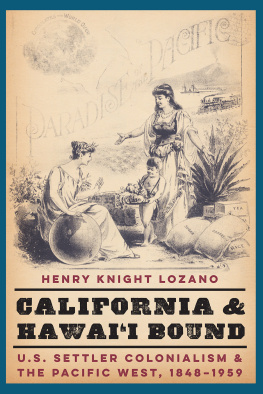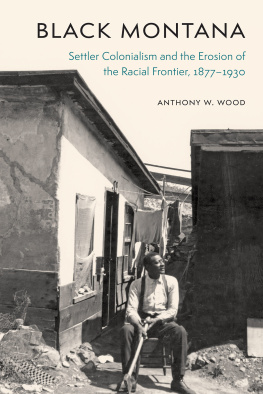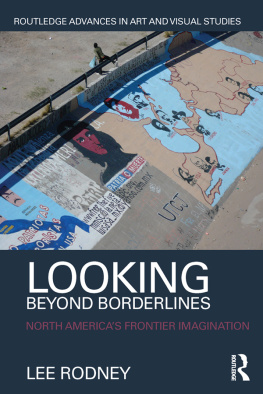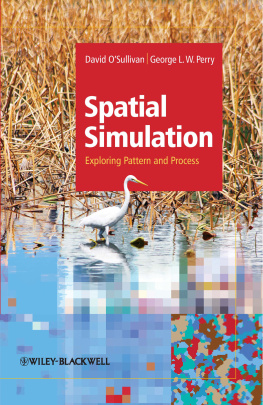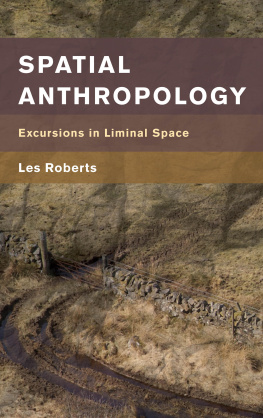Steffen Wll
The West and the Word
Dialectics of the Global
Edited by
Matthias Middell
Volume
Steffen Wll
The West and the Word
Imagining, Formatting, and Ordering the American West in Nineteenth-Century Cultural Discourse
ISBN 9783110690002
e-ISBN (PDF) 9783110690132
e-ISBN (EPUB) 9783110690248
Bibliographic information published by the Deutsche Nationalbibliothek
The Deutsche Nationalbibliothek lists this publication in the Deutsche Nationalbibliografie; detailed bibliographic data are available on the Internet at http://dnb.dnb.de.
2020 Walter de Gruyter GmbH, Berlin/Boston
Funded with help of the DFG, a product of SFB 1199.
bersicht
Contents
- On the Series
- Acknowledgements
- Abstract
- Historical Background: The West and the World
- The West and the F-Word: Americanizing Space
- Old Western History: Expanding the Frontier
- New Western History: Expatriating the Frontier
- Methods and Theories: Doing Over Geography
- The Spatial Dialectics of the American West
- Spatialization Processes: Towards a New Language of Space in Literary and Cultural Studies
- Spatial Formats and Spatial Orders
- Spatial Imaginations
- Chapter 1: Integrating the Old Northwest through Utopian, Regionalist, Feminist, and Local Colour Discourse
- A New View of Society: The Utopian Formatting of (New) Harmony, Indiana
- Locating the Western Heart in James Halls The Backwoodsman
- Transcending His-Story in Margaret Fullers Summer on the Lakes
- No Goin Back: Space, Race, and Nostalgia in Paul Laurence Dunbars Local Colour Poetry
- Chapter 2: The Incommensurable West between Integration and Separation
- Colliding Visions of the Louisiana Territory
- Assembling the Western Frankenstein in James Halls The French Village
- Violence Through Empathy: George Catlins Native American West
- Precarious Destinies: Integrating and Separating the Oregon Country
- Leaving the Course of Empire in Francis Parkmans The Oregon Trail
- Confronting the Limits of Empire in Washington Irvings Astoria
- Defiance and Disorder: Bioregionalism, Separatism, and Constitutional Safe Spaces
- Conclusion: Reimagining the American West
- List of Abbreviations
- Bibliography
- Index
On the Series
Ever since the 1990s, globalization has been a dominant idea and, indeed, ideology. The metanarratives of Cold War victory by the West, the expansion of the market economy, and the boost in productivity through internationalization, digitization and the increasing dominance of the finance industry became associated with the promise of a global trickle-down effect that would lead to greater prosperity for ever more people worldwide. Any criticism of this viewpoint was countered with the argument that there was no alternative; globalization was too powerful and thus irreversible. Today, the ideology of globalization meets with growing scepticism. An era of exaggerated optimism for global integration has been replaced by an era of doubt and a quest for a return to particularistic sovereignty. However, processes of global integration have not dissipated and the rejection of globalization as ideology has not diminished the need to make sense both of the actually existing high level of interdependence and the ideology that gave meaning and justification to it.
The following three dialectics of the global are in the focus of this series:
Multiplicity and Co-Presence: Globalization is neither a natural occurrence nor a singular process; on the contrary, there are competing projects of globalization, which must be explained in their own right and compared in order to examine their layering and their interactive composition.
Integration and Fragmentation: Global processes result in de- as well as reterritorialization.
They go hand in hand with the dissolution of boundaries, while also producing a respatialization of the world.
Universalism and Particularism: Globalization projects are justified and legitimized through universal claims of validity; however, at the same time they reflect the worldview and/or interests of particular actors.
For my sisters.
Acknowledgements
First, I would like to thank the German Research Foundation (Deutsche Forschungsgemeinschaft, DFG) whose generous support made this book possible. My deep gratitude goes to Gabriele Pisarz-Ramirez and Alexandra Ganser-Blumenau, as well as to Matthias Middell for their guidance and encouragement throughout the writing process. I would also like to thank Amelie Rie, Deniz Bozkurt as well as all colleagues, friends, and administrators at SFB 1199. I would like to acknowledge the Institute for American Studies at Leipzig University whose academic excellence has put me in the position to complete this book. The friendly staff at UC Berkeley was instrumental in unearthing the spatial imaginations of western travellers and emigrants that added tremendous value and a human dimension to this engagement with the American West, its literatures, cultures, histories, and peoples. This book is dedicated and greatly indebted to the late Crister Stephen Garrett whom I was fortunate to have as a teacher during my graduate studies in Leipzig. His life and work remain an enduring inspiration and remain unforgotten. Finally, I am grateful for the support and patience I received from my friends and family.
Throughout the last three or so years, researching spatial imaginations of the American West became more than a academic exercise. Navigating the interplays of space and discourse has also brightened my own sensibilities for the real and imagined spaces we navigate on a daily basis. The mental and physical planes and borders that confront us there are not always easily understood or put into writing. Delving into the unexplored realms of spatialization processes often meant questioning familiar ideas of space and time and their roles in the construction of individual and collective identities and performances. Life, it seems, is firmly bound by temporality and finiteness; often, we feel appointments, conferences, looming deadlines, or inconvenient opening hours conspire to form various stressful and life-shortening combinations. Adding spatial variables for example in terms of movement and (im)mobility further complicates the picture. But it also offers new potentialities of understanding and negotiating literature and culture as vital expressions of the human condition. Hopefully, the results of these negotiations make for worthwhile reading and will generate further interest in the emergent and rich topic of spatialization processes.
Abstract
In the field of US historiography, western expansion has regularly been understood as either a linear sequence of nation-building processes at a moving frontier or in terms of settler colonialism, exploitation of resources, and displacement of non-white peoples. The present book suggests that shifting the focus towards space in nineteenth-century cultural discourse opens new perspectives on the placemaking dynamics of the American West. Introducing a semantics of spatialization processes makes visible an imaginative diversity that subverts the unidirectional interpretive patterns that structure traditional approaches. Authors of western fiction and other spatial actors, the book argues, negotiated the scope of the American West through a plethora of spatial themes, tropes, metaphors, and agendas. Some of these processes solidified into spatial metanarratives like the character-shaping clash of civilizations at the frontier or the nations manifest destiny to overspread the entire continent. However, juxtaposed to and beneath canonized and self-reproducing narratives, it becomes clear, exist(ed) multiscalar, alternative spatial imaginations, which largely remain hidden under ideologically authoritative axioms.


